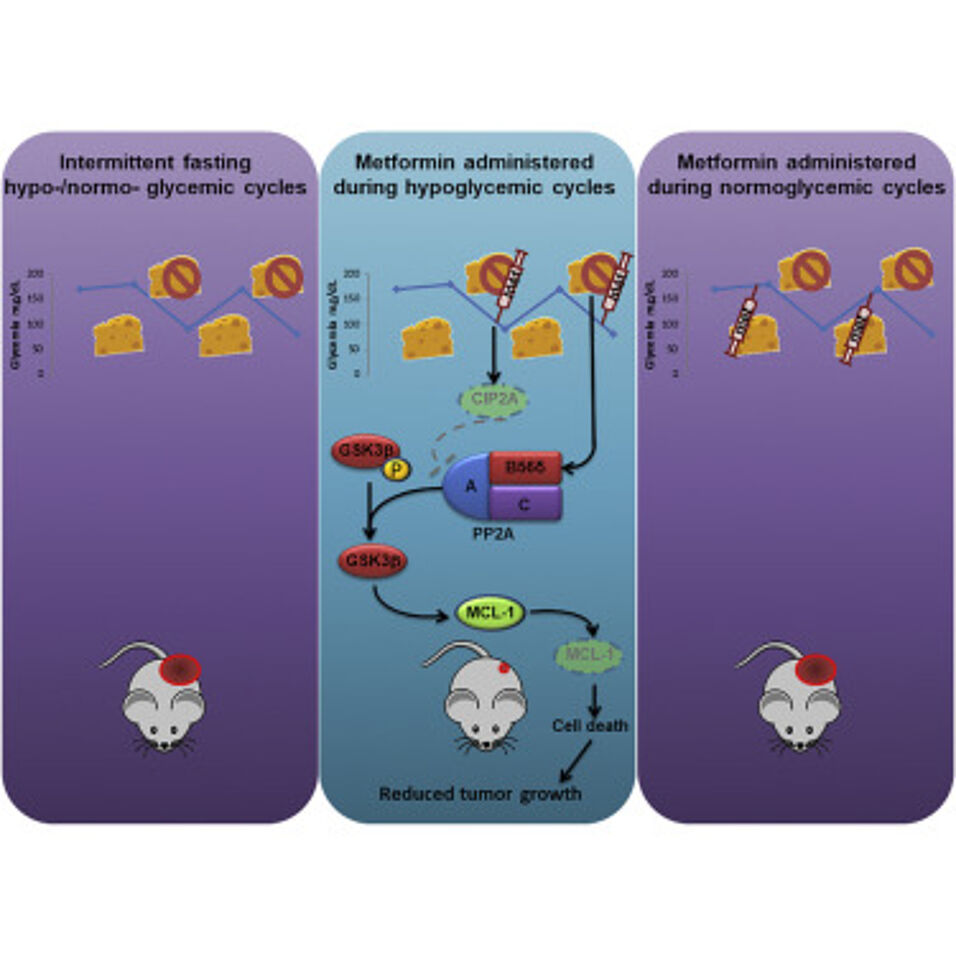In mice exposed to 24-h feeding/fasting cycles, metformin impaired tumor growth, but only when administered during fasting-induced hypoglycemia.
Synergistic anti-neoplastic effects of the metformin/hypoglycemia combination were mediated by glycogen synthase kinase 3β (GSK3β) activation downstream of PP2A, leading to a decline in the pro-survival protein MCL-1, and cell death. Mechanistically, specific activation of the PP2A-GSK3β axis was the sum of metformin-induced inhibition of CIP2A, a PP2A suppressor, and of upregulation of the PP2A regulatory subunit B56δ by low glucose, leading to an active PP2A-B56δ complex with high affinity toward GSK3β.

